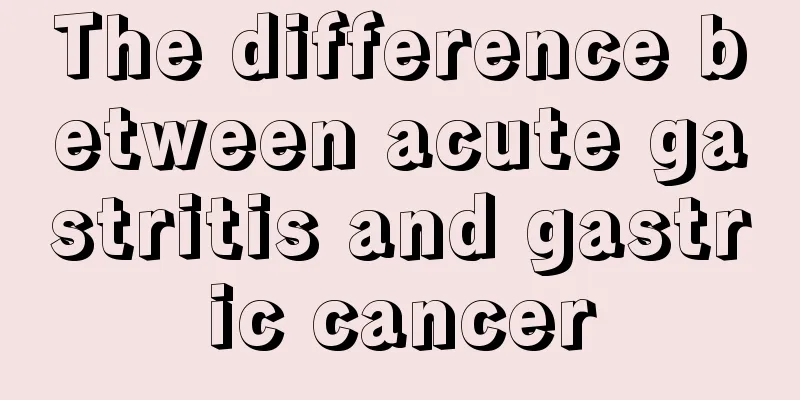What factors affect the life expectancy of esophageal cancer

|
Eating habits, long-term smoking and drinking strong alcohol, long-term consumption of hot food, hard food without chewing, etc. are inevitably related to the cause of esophageal cancer. Carcinogens are also one of the causes of esophageal cancer. Precancerous lesions and other disease factors such as chronic esophageal inflammation, esophageal epithelial hyperplasia, esophageal mucosal damage, esophageal diverticulum, esophageal ulcer, esophageal leukoplakia, esophageal scar stenosis, hiatal hernia, achalasia, etc. are all considered to be precancerous lesions or precancerous diseases of esophageal cancer. Esophageal cancer is a relatively common disease, because the incidence of esophageal cancer has been increasing in recent years. Experts say that if you want to prevent the occurrence of esophageal cancer, you must understand what factors cause esophageal cancer. This is also very important. Let's take a look at the experts' introduction. Eating habits, long-term smoking and drinking strong alcohol, long-term consumption of hot food, hard food without chewing, etc. are inevitably related to the cause of esophageal cancer. Carcinogens are also one of the causes of esophageal cancer. Precancerous lesions and other disease factors such as chronic esophageal inflammation, esophageal epithelial hyperplasia, esophageal mucosal damage, esophageal diverticulum, esophageal ulcer, esophageal leukoplakia, esophageal scar stenosis, hiatal hernia, achalasia, etc. are all considered to be precancerous lesions or precancerous diseases of esophageal cancer. ( 1) Trace elements and malnutrition: The serum molybdenum, hair molybdenum, urine molybdenum and molybdenum in esophageal cancer tissues of people in high-incidence areas of esophageal cancer are all lower than normal. The soil and water in high-incidence areas of esophageal cancer lack molybdenum, and the anti-cancer effect of molybdenum has been confirmed by most scholars. Malnutrition, insufficient intake of animal protein and lack of vitamins AB2C are common characteristics of the diet of residents in high-incidence areas of esophageal cancer. Most high-incidence areas of malnutrition do not have a high incidence of esophageal cancer, so this cannot be a dominant factor. ( 2) Mold carcinogenic factors: Eating moldy food can induce precancerous lesions or squamous cell carcinoma of the esophagus and stomach in mice. This type of mold has a synergistic effect with nitrosamines in promoting cancer.( 3) Damage to the esophageal mucosa: Long-term consumption of hot and coarse food, strong tea, and spicy food such as chili peppers can cause damage to the esophageal mucosa, causing hyperplasia and metaplasia of the esophageal mucosa, which may also be one of the carcinogenic factors. Smoking and drinking strong alcohol are inevitably related to the onset of esophageal cancer. Various long-term esophagitis may be precancerous lesions of esophageal cancer. |
<<: Famous hospital for treating colorectal cancer
>>: The first choice drug for treating colorectal cancer
Recommend
Tips for what to do if rice grains get into your nose?
People often say not to talk while eating. This i...
What are the examinations after hemisection of thyroid cancer
After hemisection of thyroid cancer, it is necess...
Why can rapeseed oil reduce swelling
Rapeseed oil is naturally the oil fried from rape...
Can rhinitis cause dizziness and nausea?
When people experience symptoms, they always wond...
How to care for baby eczema in summer
Hot summer is a season when people are more likel...
Does a positive syphilis antibody mean that you have syphilis?
In the physical examination report, does a diagno...
How to use a powder puff
Powder puffs are very common. They are an auxilia...
I always feel very tired and exhausted
In modern life, there is no motivation without pr...
What tests can be done to detect ovarian cancer? What are the precursors of ovarian cancer?
Early diagnosis of ovarian cancer relies on B-ult...
What kind of underwear should I wear if I have a flat chest?
Many girls think that only when they have full br...
What are the benefits of kissing
Kissing is something that many couples do. For lo...
What is an easy way to cut mango?
Mango is a tropical fruit that is rich in various...
What's the matter with the thick white skin on the soles of my feet?
The health of the feet is very important for peop...
Dietary care for patients with hepatic encephalopathy
Hepatic encephalopathy is a very common disease i...
How to treat high C-reactive protein
Increased C-reactive protein refers to a phenomen...









